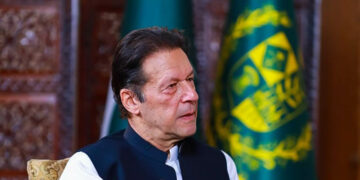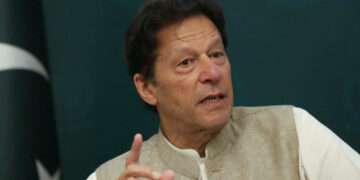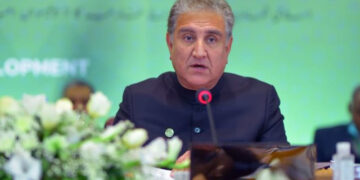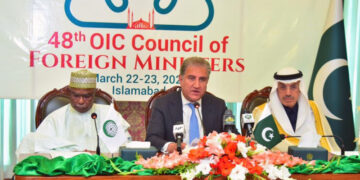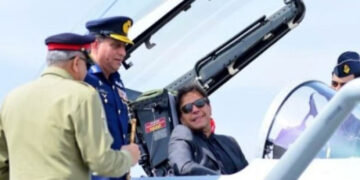Pakistan took its case on the Indus Waters Treaty to the World Bank on Tuesday, urging it to prevent India from making illegal constructions on the Neelum and Chenab rivers, embassy officials said on Tuesday.
[contentblock id=2 img=gcb.png]
“In the meeting with the Pakistani delegation, the World Bank committed itself to timely fulfilling its obligations under the treaty while remaining neutral,” said a statement issued by the Pakistan Embassy in Washington.
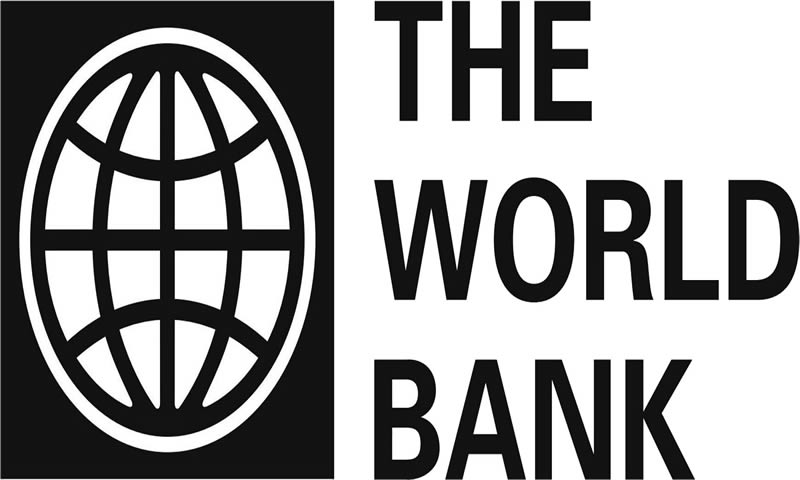
A Pakistani delegation, led by Attorney General Ashtar Ausaf Ali, met senior World Bank officials at its headquarters in Washington to discuss Pakistan’s recent request for arbitration under Article IX of the Indus Waters Treaty (IWT), 1960. The IWT is a water-distribution agreement between India and Pakistan, brokered by the World Bank and was signed in Karachi on Sept 19, 1960 by President Ayub Khan and Prime Minister Jawaharlal Nehru. The treaty gives India complete rights to waters of the Eastern Rivers (Ravi, Sutlej and Beas) and gives Pakistan the rights over the Western Rivers (Indus, Jhelum and Chenab) with limited allowance for use of water by India from the western rivers for purposes of, among others, power generation. Its Article IX deals with arbitration of disputes between the parties concerning the interpretation or application of the treaty or the existence of any fact which, if established, might constitute a breach of the treaty.
[contentblock id=1 img=adsense.png]
The treaty provides specific design criteria for any hydroelectric power plants to be built by India. Pakistan has held the position that the Kishenganga and Ratle hydroelectric plants violate the design parameters of the treaty. The differences on the designs of the two plants were discussed but could not be resolved in the 108th, 109th, 110th, 111th and 112th meetings of the Permanent Commission for Indus Waters, comprising one commissioner from each country, which is responsible for the implementation of the treaty. Secretary-level talks were then held between governments of India and Pakistan on July 14 and 15 this year. After the failure of secretary-level talks, on Aug 19, Pakistan initiated formal dispute settlement proceedings under the treaty.
[contentblock id=3 img=adsense.png]
On Aug 19, the government of Pakistan formally requested the government of India for settlement of outstanding disputes over India’s construction of Kishenganga and Ratle hydroelectric plants on rivers Neelum and Chenab respectively, by referring the matters to the Court of Arbitration as provided in Article IX of the treaty. Pakistan reminded the World Bank that the treaty gives the bank an important role in establishing a court of arbitration by facilitating the process of appointment of three judges, called Umpires, to the Court. India and Pakistan each appoint two arbitrators. In their meetings with World Bank officials, the Pakistani delegation insisted on early appointment of the judges and setting up the court. The delegation consisted, besides the attorney general, of Water and Power secretary Muhammad Younus Dagha; Pakistan’s Commissioner for Indus Water Mirza Asif Baig; and Joint Secretary (Water) Ahmad Irfan Aslam.



